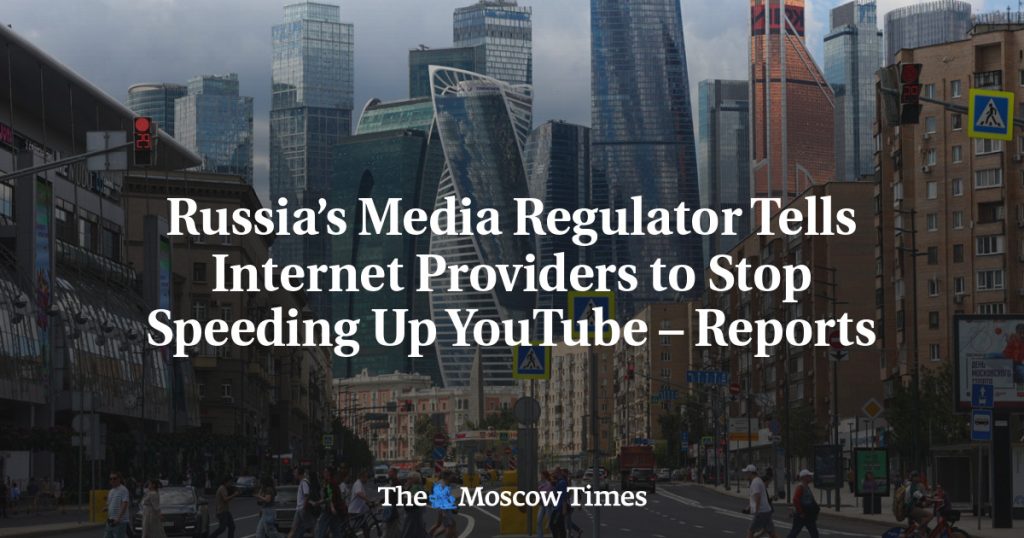In a recent development, Russia’s media regulator has issued a warning to internet providers to cease efforts that aim to speed up YouTube loading speeds. This warning was seen as an acknowledgement of government attempts to throttle the popular video streaming platform. The main regulatory arm of Roskomnadzor, the main radio frequency center GRChTs, sent out this message following reports that numerous internet providers were using workarounds to boost YouTube loading speeds by rerouting user traffic from Google’s Russian servers to those in Europe. While industry insiders believed that these workarounds did not violate any rules since there were no official restrictions on YouTube issued by the Russian government, the GRChTs letter instructed providers to exclude the use of technologies that distort, fragment, and substitute internet traffic in relation to websites subject to restriction under Russian law, likely referring to YouTube.
Internet providers were asked to comply with the orders to ensure the possibility of immediately restricting access to specific information or information resources on the internet. The GRChTs letter did not specify which resources it meant, and the authenticity of the letter could not be independently verified by The Moscow Times. Online users in Russia began experiencing significant declines in YouTube loading speeds in August after Russia’s state-owned telecom giant cited technical issues caused by Google’s removal of equipment from the country as the reason for the slowdowns. Additionally, Roskomnadzor called on Google CEO Sundar Pichai to restore over 200 YouTube channels belonging to pro-government Russian media, authorities, and public figures. Since the full-scale invasion of Ukraine in early 2022, the Russian authorities have accused YouTube and Google of spreading “terrorist” anti-war content, leading to speculation that the video-streaming website might be blocked entirely.
The actions of Russia’s authorities against YouTube and Google come amid increasing pressure on media outlets in the country. The Moscow Times, an independent news outlet, is facing challenges due to being designated as an “undesirable” organization by Russia’s Prosecutor General’s Office, criminalizing their work and putting their staff at risk of prosecution. This designation follows the previous labeling of The Moscow Times as a “foreign agent.” The authorities claim that the publication’s work discredits the decisions of the Russian leadership, while the journalists at The Moscow Times strive to provide accurate, unbiased reporting on Russia and refuse to be silenced. The support of readers is crucial for The Moscow Times to continue its work, with every contribution making a significant impact in defending open, independent journalism in the face of repression.
The situation regarding YouTube in Russia highlights the larger issue of internet regulation and censorship in the country. With the authorities cracking down on platforms like YouTube and Google for spreading content deemed anti-government or anti-Russian leadership, there are concerns about the freedom of expression and access to information. The government’s attempts to control internet traffic and restrict certain websites raise questions about the extent of online censorship and the impact on media freedom in Russia. Efforts by internet providers to boost YouTube loading speeds can be seen as a way to counteract potential throttling by the government, but the warning from the media regulator indicates a pushback against such measures.
As the Russian government continues its crackdown on independent media outlets and online platforms, the future of internet freedom and media freedom in the country remains uncertain. The pressure on internet providers to comply with regulations that restrict access to certain websites reflects a broader trend of tightening control over the flow of information in Russia. The situation also raises concerns about the accountability of internet providers and their role in enabling or resisting government censorship. In this evolving landscape of internet regulation and media control, the actions of the Russian authorities and the responses of media outlets and internet providers will shape the future of freedom of expression and access to information in the country.














